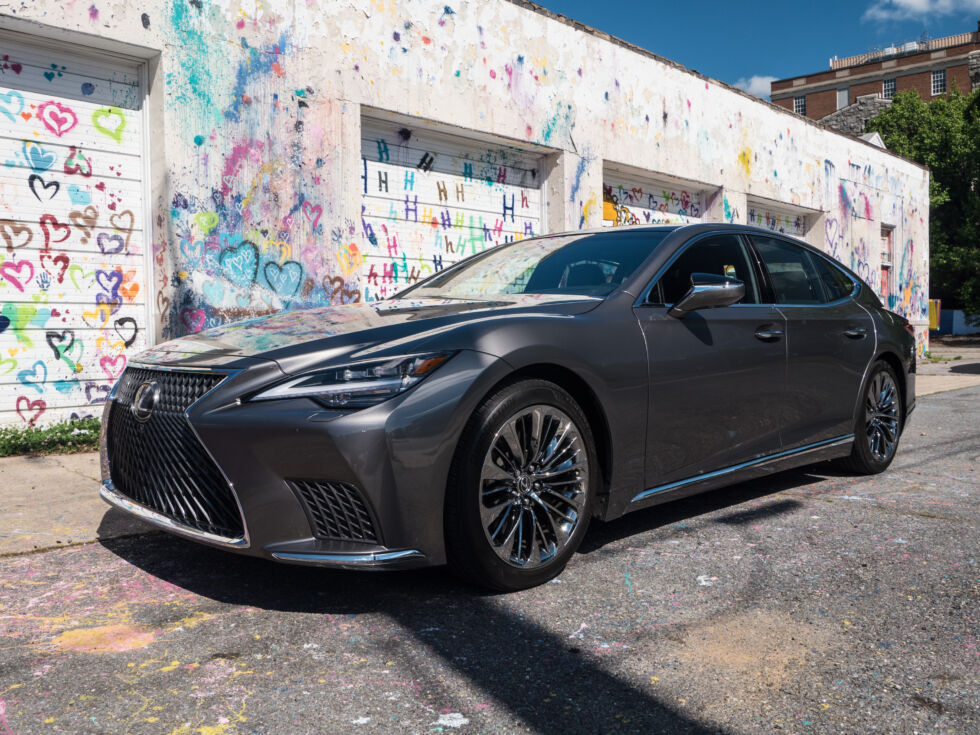-

This is Lexus' flagship model, the LS500 sedan. [credit: Jonathan Gitlin ]
When Lexus arrived on the scene in 1989, it was a wake-up call for existing luxury car makers. Toyota was only really known outside Japan for making mainstream cars, and the company wanted to prove it could build a better luxury car than anyone else. The LS400 made a convincing case that it could. Not only was the car cheaper and faster than its German rivals, but it was also quieter and more refined, as well as lighter and more efficient. It was well-built, too. (It even made a cameo in Street Fighter II.)
Thirty-two years later, Lexus is a well-established option if you're looking for a luxury car. And despite shrinking demand for flagship sedans as drivers continue to display a bad case of SUV-itis, Lexus still offers a flagship sedan. The current LS is in its fifth generation, first introduced at the end of 2017 and then face-lifted recently for model year 2021. After spending a week getting to know one, I can say that Lexus still knows how to craft a beautiful, well-constructed car. At the same time, the LS is starting to show its age in places.
At its core, the LS500 uses one of Toyota's new global architectures, in this case TNGA-L, for the biggest rear- or all-wheel-drive luxury cars. Although the numerals in the name used to refer to engine displacement, like BMW and Mercedes-Benz, they are no longer accurate: the 2021 LS500 is actually powered by a 3.4 L twin-turbocharged V6. A decrease in capacity over the previous naturally aspirated V8 is no real downgrade, as the V6 is silky in its delivery of 416 hp (310 kW), and the 442 lb-ft (600 Nm) of torque arrives as a broad plateau from 1,500 rpm. Lexus builds both rear-wheel-drive (MSRP: $76,000) and all-wheel-drive (MSRP: $79,250) LS500s, but regardless of how many wheels are driven, all come with a 10-speed automatic transmission.
No comments:
Post a Comment